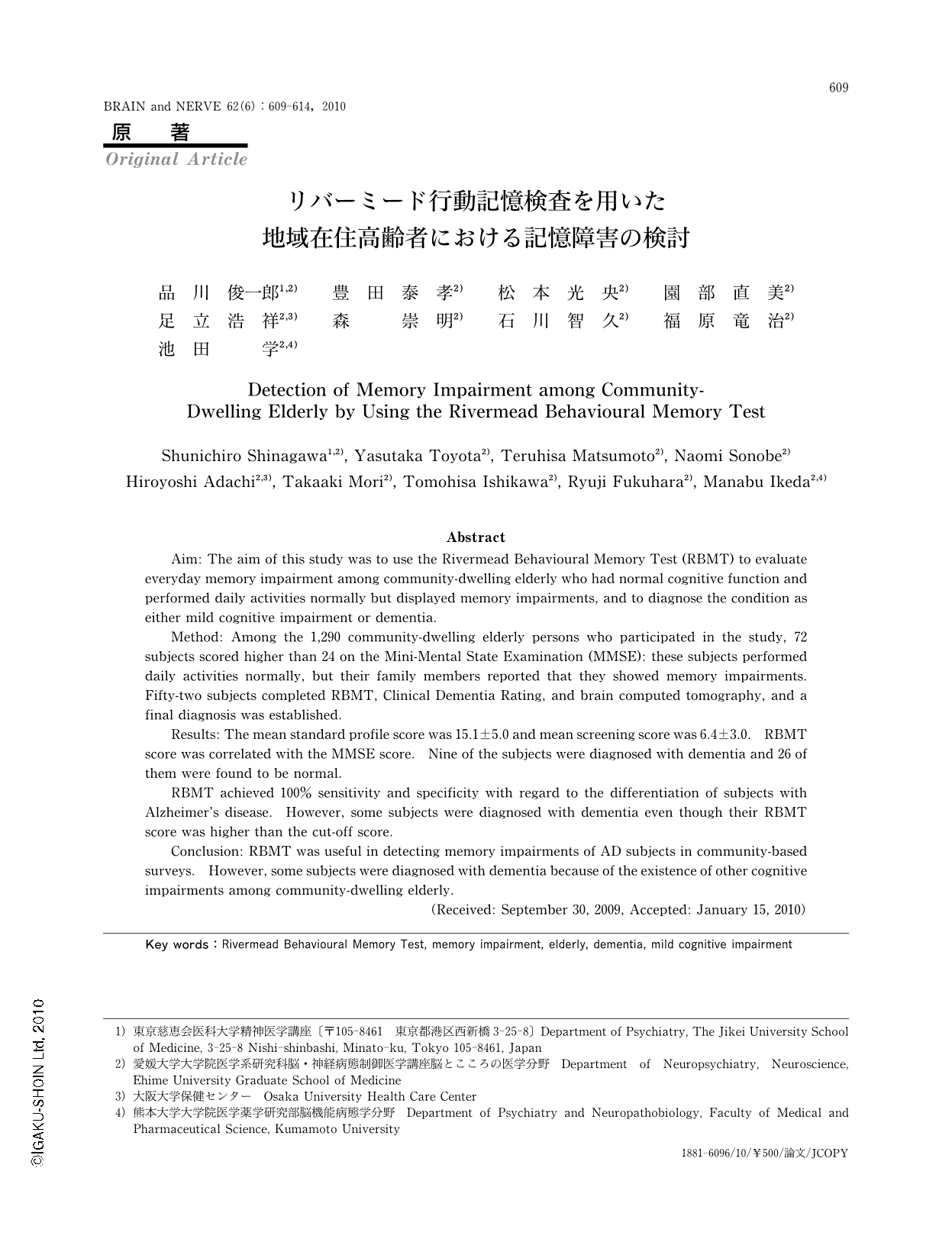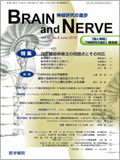Japanese
English
- 有料閲覧
- Abstract 文献概要
- 1ページ目 Look Inside
- 参考文献 Reference
Ⅰ.背景
地域社会において認知症をより早期から診断し,介入しようとする試みは近年になり活発になっている。軽度認知障害(mild cognitive impairment:MCI)は現在多くの研究で用いられている代表的な認知症の前駆段階の概念である1)。当初Petersenらによって提唱されたのは,認知症の最も多い原因疾患であるAlzheimer病(Alzheimer's disease:AD)の前駆段階として想定され,記憶障害のみに限定された定義であったが2),その後MCIの多様性が指摘され,いくつかの変遷を経て記憶障害以外の認知機能障害も含まれるようになった3)。しかし,現在でもMCI概念の中核となっているのは記憶障害が主体となる健忘型MCI(amnestic MCI)であり,MCIを検出しようとする疫学研究の多くはこのamnestic MCIを中心に行われている4)。
専門外来においては,認知症やamnestic MCIが疑われた高齢者の記憶障害を検出するためには,Wechsler記憶検査(Wechsler Memory Scale-Revised:WMS-R)の論理記憶などが用いられるのが一般的である5,6)。しかし,WMS-Rは施行に際して時間と労力を要するため,地域疫学調査においては施行が困難な場合も多い7)。また,WMS-Rの論理記憶は主に言語性記憶に依存するため,実際の日常生活場面での記憶障害を反映していないとの指摘もある8)。
Abstract
Aim: The aim of this study was to use the Rivermead Behavioural Memory Test (RBMT) to evaluate everyday memory impairment among community-dwelling elderly who had normal cognitive function and performed daily activities normally but displayed memory impairments,and to diagnose the condition as either mild cognitive impairment or dementia.
Method: Among the 1,290 community-dwelling elderly persons who participated in the study,72 subjects scored higher than 24 on the Mini-Mental State Examination (MMSE): these subjects performed daily activities normally,but their family members reported that they showed memory impairments. Fifty-two subjects completed RBMT,Clinical Dementia Rating,and brain computed tomography,and a final diagnosis was established.
Results: The mean standard profile score was 15.1±5.0 and mean screening score was 6.4±3.0. RBMT score was correlated with the MMSE score. Nine of the subjects were diagnosed with dementia and 26 of them were found to be normal.
RBMT achieved 100% sensitivity and specificity with regard to the differentiation of subjects with Alzheimer's disease. However,some subjects were diagnosed with dementia even though their RBMT score was higher than the cut-off score.
Conclusion: RBMT was useful in detecting memory impairments of AD subjects in community-based surveys. However,some subjects were diagnosed with dementia because of the existence of other cognitive impairments among community-dwelling elderly.
(Received: September 30,2009,Accepted: January 15,2010)

Copyright © 2010, Igaku-Shoin Ltd. All rights reserved.


